Thank you to Thrive Global for publishing my article about Deborah Tannen’s book, Finding My Father.

Did you ever wonder about your father’s life before your were born? Deborah Tannen wanted to know more and spent decades interviewing her father and reading his journals after he retired. He was a writer, kept copies of his letters and was thrilled for her to not only read them but also discuss the contents with him. She shares this journey of discovery in her book, Finding My Father.
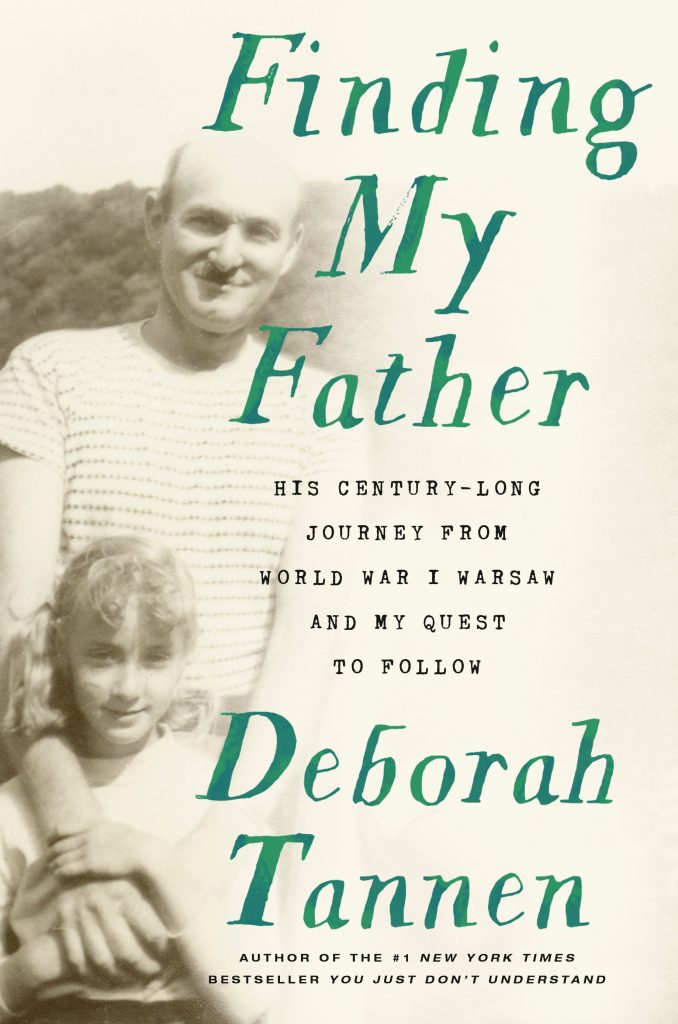
After I graduated from the University of Pennsylvania with a degree in Women’s Studies, Tannen’s first book, “You Just Don’t Understand: Women and Men in Conversation” was published in 1990. It fascinated me and many others as it remained on the New York Times Best Seller list for nearly four years, and was translated into 30 other languages! She also wrote books about siblings and the mother-daughter relationships. Both of these books, “You Were Always Mom’s Favorite!: Sisters in Conversation Throughout Their Lives” and “You’re Wearing THAT?: Understanding Mothers and Daughters in Conversation” were also New York Times best-sellers.

She has written about how we talk in our families, at work and to each other. It makes sense to me that she would explore her relationship with her father and his connection to his wife and his mother. This book is a love letter to her father.
Tannen learns about his choices and challenges from his abusive mother to his concerns that he would die young leaving behind a wife and young children as happened to him when his father died. His goal was get his mother and sister married and settled before found his own happiness or considered getting married himself.
His early life in Poland were some of his best memories despite the many hardships like hunger, cold, and poverty. “When there was no coal or wood to burn, they kept enough in the stove for cooking, and that’s the only room that was warm.”
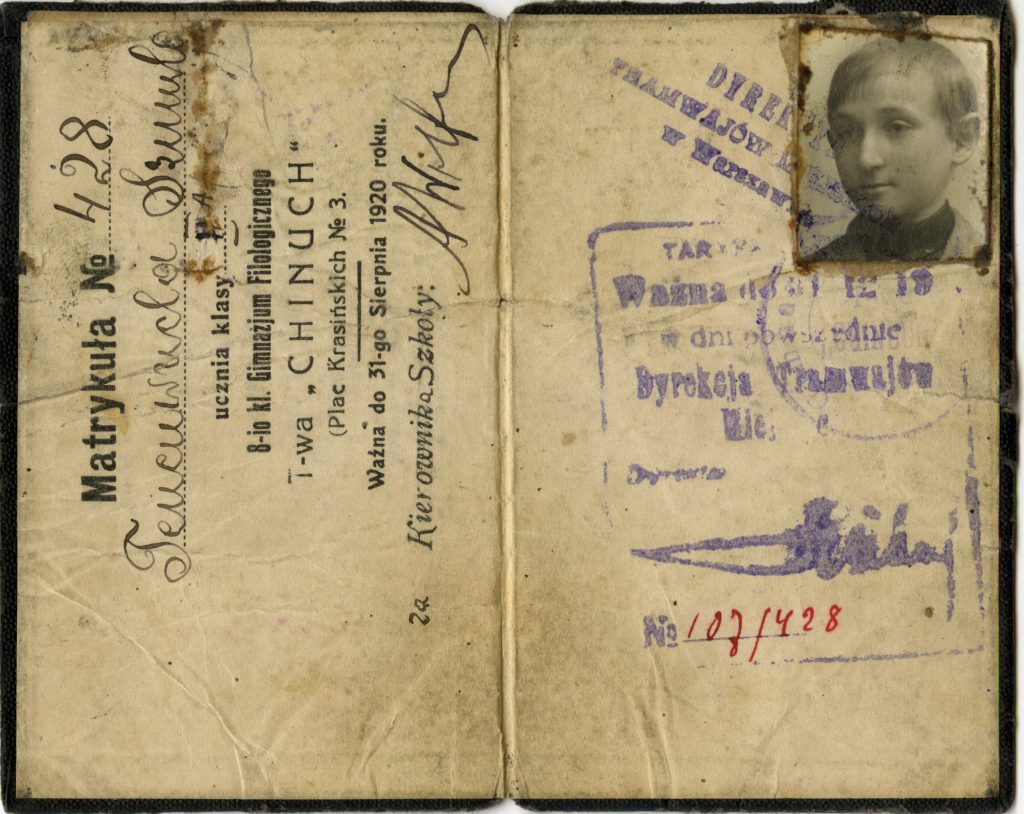
I was surprised by many of Tannen’s discoveries about her family. Her grandmother ran a school during the German occupation of Poland in the First World War. “Many Jews served in the German army during the first, and the German rabbi who came to Poland in hopes of improving education for Polish Jews was appointed a chaplain in the army.”
Her father was raised in a Hasidic Jewish family and while the boys were studying Torah, the girls of the family received a secular education and became very successful. As Tannen recounts, “It still stuns me to think of the professions these women, born in Poland in the 1880s, attained: my grandmother, a school principal; Eva, a periodontist; Bronia, a philologist; Magda, a high-ranking official in the Polish government; and Dora, a mathematician and physicist who was a student—and lover—of Einstein, became pregnant with his child, and had an abortion.”
As Tannen explained more about Eva, I wished that I had journals to read about my own family history. I wonder what my relatives might have become or who they met! Tannen’s father told her: “My grandmother’s sister Eva studied dentistry in Poland. She came to the United States at twenty-one, in January 1914, just before the First World War broke out. Retraining at Temple University, she became the first woman periodontist—and the first woman dentist—in Newark, where she continued to practice until she retired at eighty-four. So Eva was a pioneer, if not a revolutionary. As late as the 1950s, only 1 percent of dentists were women.” I was mesmerized to learn “that many of the first women dentists in the United States were immigrants.”

Photo courtesy of Deborah Tannen

Photo courtesy of Deborah Tannen
She recounts her father’s life including when he had 68 jobs from the “years between 1933, when the finance company folded, and 1941, when he took the position in Danbury: eight years of the Great Depression.” While times were challenging, the information is a treasure trove of what life was like as well as her father’s hopes for the future.
At one point, Tannen and her father discuss: “Your mother wasn’t my girlfriend. Helen was my girlfriend.”
He explains: “Mother typed my master’s thesis.” Typing his thesis for him certainly is sort of like a girlfriend. “It’s funny that she was typing it,” I say, “because in your thesis you argued against the idea of marriage, right?” “Yeah!” He laughs. “That was my own personal idea, this idea that I was against marriage. I thought it’s not a good idea, marriage, at all. But the curtain behind which I was arguing it was the Roman law on marriage. At that time I had studied it.”
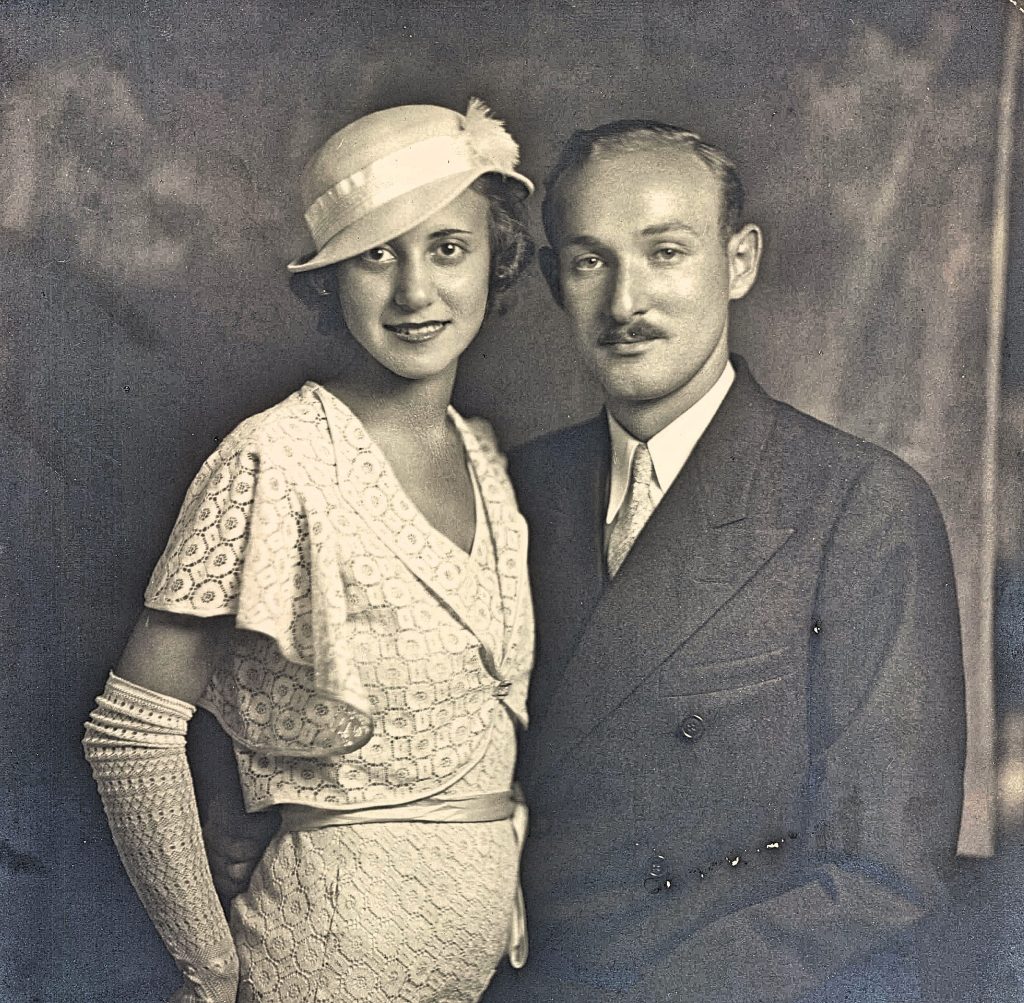
Photo courtesy of Deborah Tannen
Tannen and her father continue to discuss the two women in his life and his decision of who to marry as well as if they “had sex, he would have felt obligated to marry her…To deflower a girl who was a virgin. Macht unglücklich we used to say, made her unglücklich, unfortunate—ruining her whole life.”
I was engrossed in the descriptions of their conversations and I wonder how many people have the opportunity to extensively interview their parents. Tannen learns that her father had a dream to “live in different countries, as soon as I got my mother and sister married.” This was also her wish too and she wonders: “Maybe I got it from you without knowing it.” We inherit aspirations from our family without always realizing it.
It was sad to learn about how her father was abused by his mother. “Not only insulting and berating him, but having screaming fights with him in private—and with strangers and neighbors in public….She was physically violent.” When he was nineteen and been financially supporting her for over five years, he wrote that: “she picked up a heavy stick and belabored me with all her might and kicked me so hard that the marks shall yet remain for quite a while.” He wrote about being suicidal and felt doomed because after his father died at twenty-seven of tuberculosis, his mother raised him and his sister on her own and complained about it all of his life.
Tannen discusses how: “Memory is like that. We mix things up, we get things wrong. But what matters is how a memory fits into the story of our lives.” She is able to take the time to untangle the truths and the stories that created her father’s life.
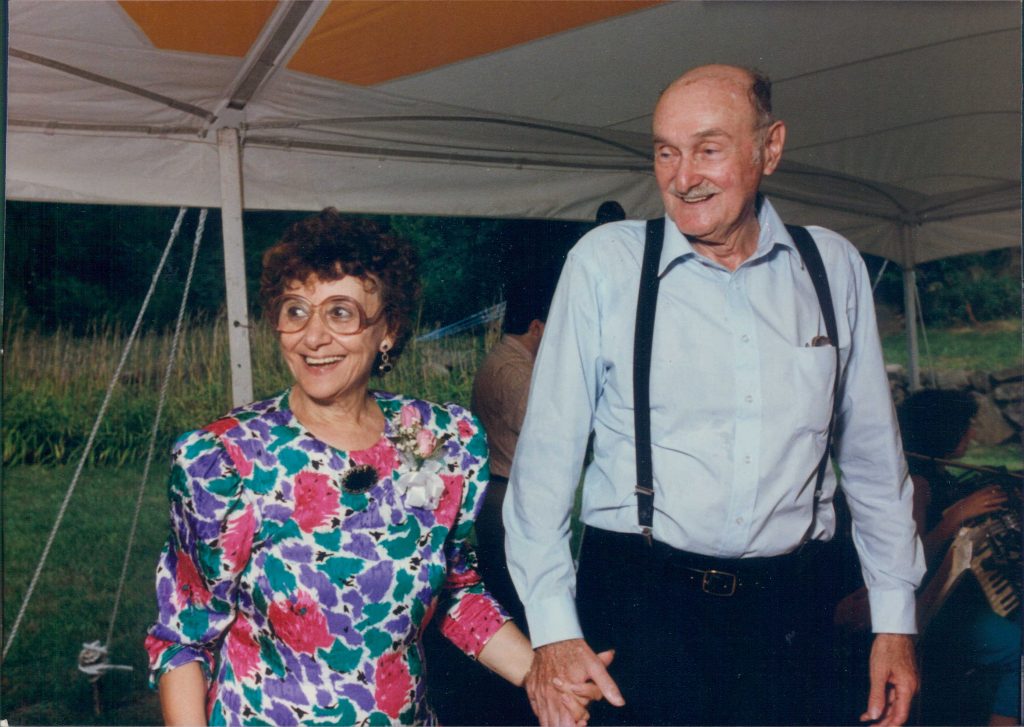
Photo courtesy of Deborah Tannen
After her mother, Dorothy died at 93, her father wrote a letter to his friends:
“I wanted her to live at least to 110. I don’t know how I can go on without my Dorothy. We’ve been married only 71 years, but I loved her since she arrived in America at age 12. Truth is I do not know what I’ll do, what I can do, without her. To me her loss is equivalent to the loss of a saint, the kind that may never walk again on earth.”
He was fourteen when they met and she was his best friend’s 12 year old younger sister. He deeply loved her for seven decades and wrote her poems.

Photo courtesy of Deborah Tannen
Despite struggles with work, family life and war, Tannen’s parents “created a family full of liveliness, warmth, and love.” Their long marriage was a gift as were the letters and journals which allowed Tannen to better understand her family.
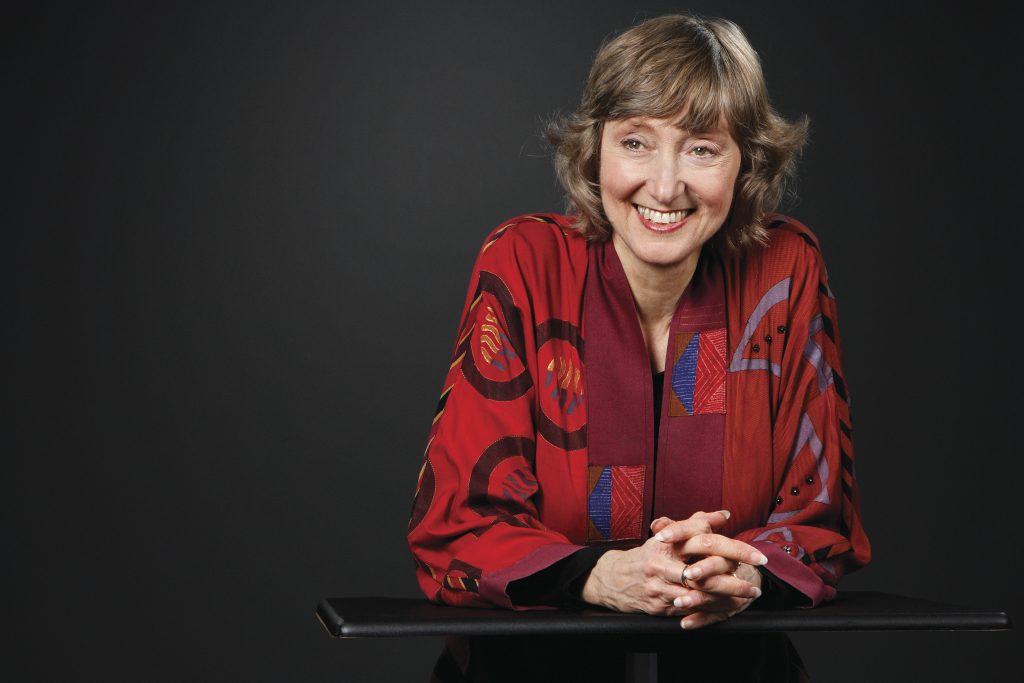
Photo by Jonathan Timmes

Read my article on THRIVE GLOBAL
